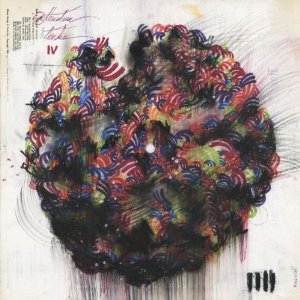One of the most appealing aspects of the Los Angeles Brainfeeder collective, that loosely defined group of hip-hop producers surrounding scene luminary Flying Lotus, is that no two individuals within it sound the same. Sure, there are similarities aplenty – how could that not be the case when all work variations on the loose enough ‘beats’ theme? – but the music emerging from that axis remains so consistently thrilling precisely because of its diversity. In that sense the creative conduit that has opened between LA and London’s dubstep community stands out in even sharper relief: both sounds permanently strive to overcome any lazy limitations placed upon them, content to live in states of flux, contained only by loose adherence to mixable tempo. The output to date of FlyLo’s Brainfeeder label acts as a pretty neat microcosm of that whole community’s eclectic approach, placing the darkened robo-funk of Lorn alongside Gaslamp Killer’s slithering samplework, Gonjasufi’s cracked howl next to the aural cut-up techniques Daedelus displayed on Righteous Fists Of Harmony. And all operating in parallel to Flying Lotus’ twin peaks – Los Angeles, 2008’s prophetic map of the city’s ungainly musical sprawl, and this year’s expansive jazz odyssey Cosmogramma – both of which are simultaneously of the same world and entirely, chronically other.
Teebs’ Ardour is another to add to that impressive collection, then, though its fresh-faced, wide-awake charm – bordering on playful naivety; no bad thing – sets it quite apart from the typically darkened, borderline sleazy nocturnes the label has attached its name to so far. Its eighteen sketchlike constructions sound like the work of a dreamer, eyes cast to an imagined horizon where colours blur into one another to form a sort of soft-focus landscape. And while nostalgia, oversaturation and fake Polaroid snaps are all so now it hurts, Teebs’ music manages to sidestep any potential chillwave associations in that it calls to mind an entirely imagined world. It’s less a case of looking backward than looking inward, and it’s resulted in some of the most beautiful music you’re likely to come across all year.
Ardour is a lush, sumptuous record, openly heartfelt and immediately welcoming, though deceptively complex beneath its gauzy surface. On first listen the ‘tropical’ buzzword immediately springs to mind, though at this point it’s a cliché within a cliché; if it weren’t for its supple beat, opener ‘You’ve Changed’, with that looped central motif, could almost be an outtake from Fennesz’s similarly equatorial Endless Summer. Mid-album highlight ‘Arthur’s Birds’ slinks at a sub heart-rate throb, eased along by chiming chords that puncture the reverie like droplets of oil lancing through water. And that aquatic feel is extended across the album’s length, tracks like ‘Gordon’ and ‘Bern Rhythm’ both underpinned by what sounds suspiciously like a running tap (though Teebs might well prefer ‘waterfall’). It’s a sonic signature shared with fellow ‘feeder member Nosaj Thing – though where the latter’s Drift was stormy and dystopian, a hip-hop take on Ballard’s Drowned World, Ardour is far less gritty and unsettling.
And that’s the one criticism it’s easy to make, though it’s perhaps an unfair one, as Ardour is a thoroughly impressive debut. In light of many of his close contemporaries, who blend light and shade with searing abandon, Teebs’ sound lacks the sheer tension that makes FlyLo or Lorn’s music so compelling. It’s gorgeous and immersive, sure, but often breezes by in the slipstream rather than making a grab for total attention. When its easy flow is interrupted, when harder edges creep briefly to the fore, as with the glitchy string cascades of ‘My Whole Life’ or the shards of glass that slice ‘Long Distance’ to shreds, it’s a whiplash back into the real world. And though it’s a worrying thing to suggest during these messy times, sometimes a solid dose of reality works wonders.



